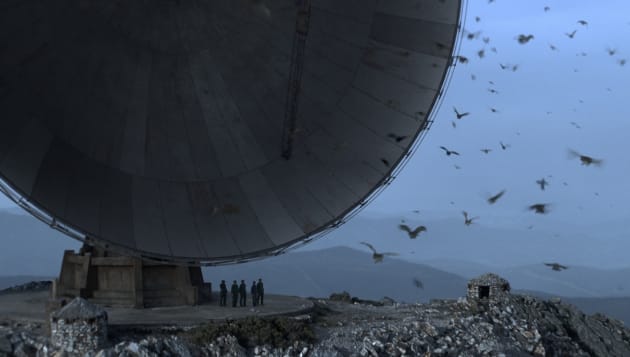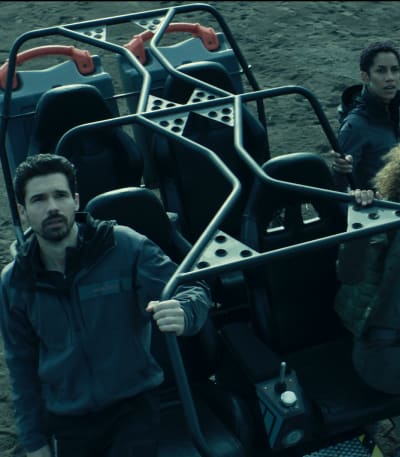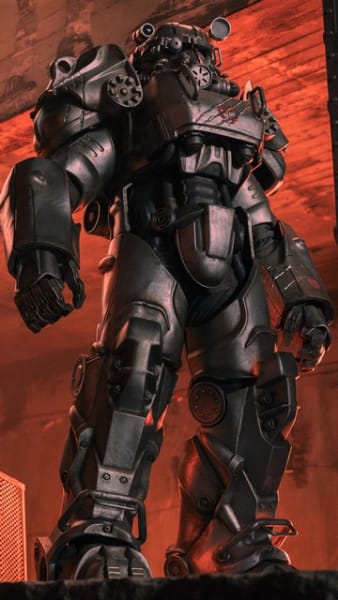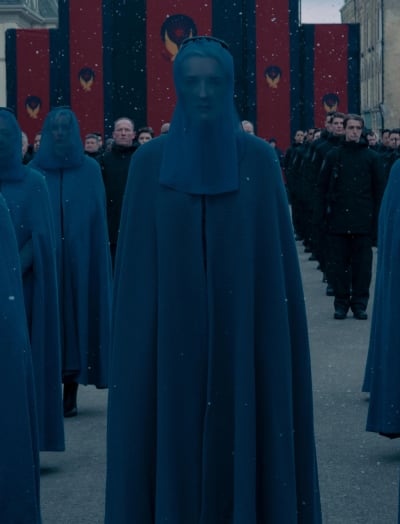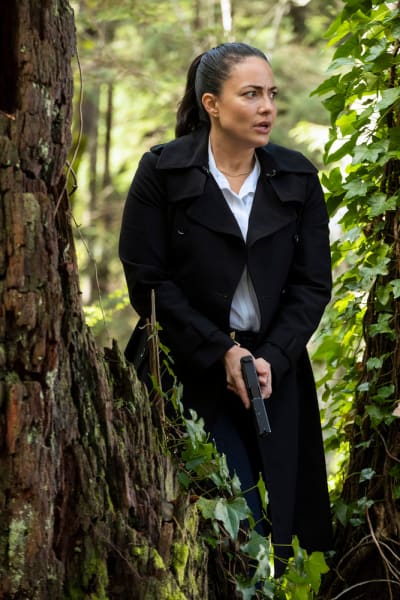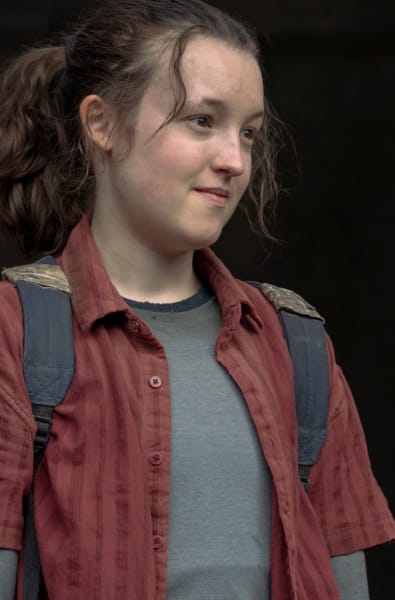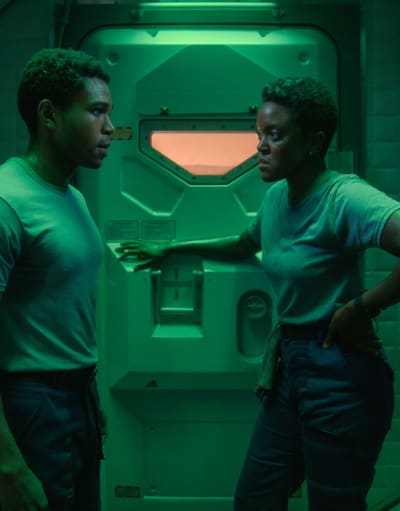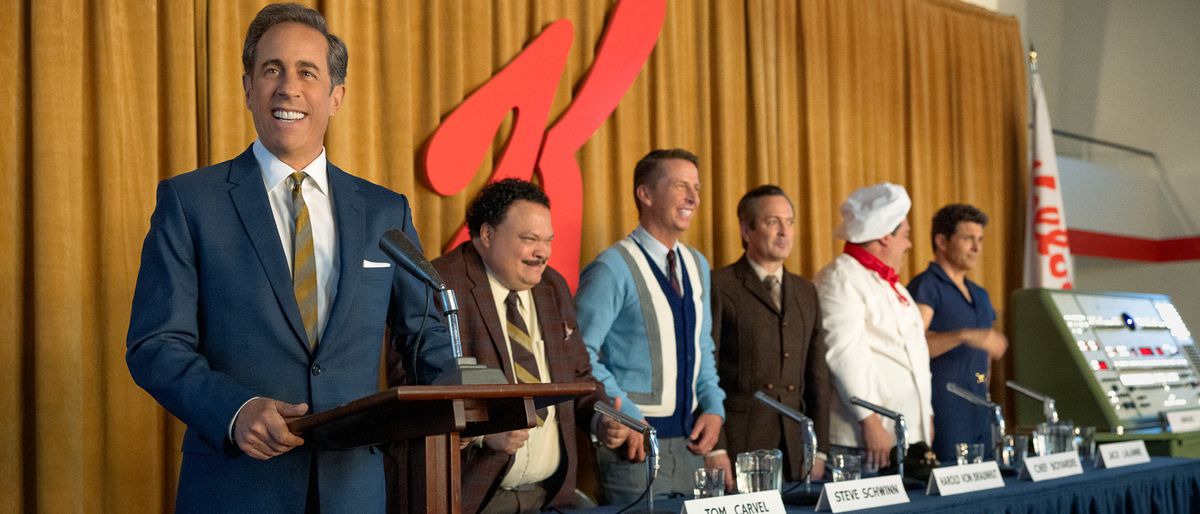From the tiniest micro-organism to the far reaches of the universe, sci-fi adaptations have made a triumphant splash across multiple streaming platforms. For decades, the collective groans that routinely followed book-to-TV adaptation announcements were a given.
At the same time, many science fiction books are so steeped in lore, character motivations, politics, and scientific complexities that converting prose to a “show but don’t tell” format is a tall task.
Star Trek, for instance, has historically been pretty cut and dry with its science. A phaser will vaporize you (unless you set it to stun, of course), and a transporter will, well, transport you.
Now, imagine explaining the three-body problem from a show but don’t tell approach.
Thankfully, the rash of exciting new sci-fi adventures solves these riddles with filmmakers and writers who are passionate about the material.
The 3 Body Problem is practically the face of Netflix right now, while Apple TV+ is going all in with upcoming adaptations of Martha Well’s All Systems Red and Blake Crouch’s Dark Matter.
Perhaps The Expanse, a popular show that Prime picked up from SyFy (a recurring theme these days), is the reason for the growing popularity of the adaptation dynamic.
Written by Daniel Abraham and Ty Franck and adapted by Mark Fergus and Hawk Ostby, The Expanse flipped typical science fiction tropes on their heads by sticking as close to the science of space travel as possible.
Coupled with the fact that realistic, relatable characters populate the entire story, it became a must-watch series on TV in short order.
Perhaps therein the secret lies, with so many sci-fi adaptations exploding in popularity in the wake of The Expanse’s passing.
Netflix
Right now, the first and most obvious choice is the 3 Body Problem, based on the novel by Liu Cixin. Thanks to the show’s popularity, there’s a good chance that Netflix will be able to adapt the entire three-book storyline known as the Remembrance of Earth’s Past trilogy.
As good as the 3 Body Problem is, Netflix isn’t a one-trick pony. They knew well enough to snag Syfy’s Resident Alien for a run on the streamer, which will, in turn, bring more eyes to the show’s third season, which can be found on Peacock.
Altered Carbon, written by Richard K. Morgan, is an excellent adaptation with an unfortunately short two-season run, with the two seasons covering the first two books. Morgan inserts the idea of portable consciousness into a future cyberpunk universe.
If you like Blade Runner, Altered Carbon is cut from the same cloth.
For the kiddos (or maybe the kid in you), Jurassic World: Camp Cretaceous is a TV-PG romp through the world of the late Michael Crichton’s Jurassic Park.
Then there’s The Nightflyers, an adaptation of a lesser-known George R.R. Martin work that is understandably eclipsed by his Song of Ice and Fire series and HBO’s Game of Thrones adaptation.
Prime Video
The Expanse is a must for Prime subscribers, and the books are even better. The series does an incredible job of matching the chemistry between the characters in the book. For a series like this to work, that chemistry is all-important, just like on the bridge of the Enterprise.
However, that’s where the similarities between The Expanse and Star Trek end. In the show, like the books, space is a character in and of itself far more dangerous than the well-written and well-cast antagonists.
For a dose of dystopian alternate history, The Man in the High Castle is a riveting adaptation of the original novel, written by Phillip K. Dick and adapted by Frank Spotnitz. The Man in the High Castle is as instructive as it is entertaining.
Phillip K. Dick’s contributions to Prime don’t end there, with Electric Dreams also on the streaming platform. Unlike The Man in the High Castle, Electric Dreams is a standalone anthology with ten episodes that explore everything from post-nuclear war survival to space tourism.
If that’s not enough to satiate your alternate universe appetite, The Peripheral is another exceptional series created by Scott B. Smith and adapted from William Gibson’s book of the same title.
Paper Girls puts a unique spin on the time travel genre with a cast of young characters who more than hold their own with the more experienced actors on screen. Though it separates itself from the comic book series in some ways, it’s still an exciting diversion on a Friday night after a long day at work.
Fallout is Prime’s most recent sci-fi adaption from Bethesda’s popular Fallout video game series. All eight episodes of the season are available, and the positive critic and audience consensus are outstanding, leading Prime to green light Season 2 in short order.
Apple TV +
Apple TV + may not be up there with Netflix and Prime in terms of subscribers, but it’s home to some of the biggest budget productions on any platform. It’s as close as you can get to theater-level, big-budget movies on a small screen.
Hugh Howey began writing the Wool Series (as it was known back then) as a small, short story meant to be a standalone, self-publishing project. However, he had no idea what he had on his hands, with the book exploding in popularity via the Amazon Kindle Direct Publishing platform.
Apple TV + picked it up in 2021, and the rest is history, with SIlo being one of the premier attractions on Apple’s relatively young streaming service.
Apple has an affinity for sci-fi adaptations, with Foundation (based on the classic novels by Isaac Asimov) and the intensely fascinating Last Days of Ptolemy Grey (based on the book written by Walter Mosley) available.
With Dark Matter and Martha Well’s excellent ‘Murderbot Series’ on the horizon, Apple is putting most of its eggs into the sci-fi adaptation basket.
Dark Matter is incredibly intriguing and a complex story to pull off. Like the book, the show delves deeply into quantum mechanics, which is not the easiest print-to-screen subject matter. Blake Crouch is also the mind behind another book-to-screen series with Wayward Pines.
Think dark, twisted science colliding with confused characters thrown into upside-down, complex environments and situations. If Dark Matter is anything like Crouch’s previous work, it will be a mind-bending trip down sci-fi alley.
Hulu, Paramount +, and Peacock
In the realm of sci-fi adaptations, Hulu is probably best known for The Handmaid’s Tale, an ongoing series adapted from the 1985 novel by Margaret Atwood.
The book and the series cover a wide variety of ideals, all of which revolve around the brutal oppression of women. The series’ dark vision echoes past times, with the brutality meter turned up to 10.
Paramount’s most significant sci-fi adaptation is undoubtedly Halo. Based on the enormously popular Halo video game series on the Xbox, Halo is a futuristic military thriller with a story that revolves around humanity’s war against the Covenant.
While the first season did okay, Halo is proof positive that it’s difficult to please the hardcore fan bases built around these worlds and stories through years of dedication. With Halo Season 2 on the horizon, seeing if the story addresses some of its criticisms will be interesting.
Peacock‘s attempt at adapting H.G. Wells’ War of the Worlds resulted in a three-part event series that is definitely worth a watch. While most War of the Worlds fans are familiar with the classic movie and Steven Spielberg’s more recent remake, this version takes place in Great Britain.
You’ll also find Resident Alien on Peacock, with all three seasons, rather than two out of three on Netflix.
Brave New World, an adaptation of the 1932 classic written by Aldous Huxley, is also a part of the growing sci-line up on Peacock. Released in 2020, Brave New World is anything but featuring a “utopian” society under the absolute control of government.
Max
Max is the go-to destination for lesser-known science fiction shows and movies. There aren’t many sci-fi adaptations, but what Max offers is impressive.
Fired On Mars is loosely adapted from a short film with the same title. Comedy and a sort of midlife crisis combine to make Fired On Mars one of the more unique science fiction alternatives on any streaming platform.
Based on the trendy novel of the same name, the more prominent Station Eleven brings together a traveling symphony band and a malicious cult 20 years after most of the world’s population was wiped out.
For those who enjoy the usage of flashbacks to flesh out characters and tell a story, Station Eleven builds its story through extensive use.
Of course, no Max sci-fi adaptation list would be complete without mentioning The Last of Us, adapted from the incredibly popular video game.
As another post-apocalyptic drama, The Last of Us separates itself from a crowded genre with well-developed characters and excellent writing, along with a unique take on the zombie genre.
From the outside looking in, it’s easy to write off The Last of Us as just another zombie series. But the show pushes the characters to the forefront, using the creatures as inciting incidents for high-pressure decision-making.
More Sci-Fi Adaptations to Come
It’s not always easy to take a well-loved series, adapt it for the small screen, and please everyone. However, with the success of so many sci-fi adaptations, including movies, the future looks very good.
Max is working on bringing the Bene Gesserit of Dune lore to the small screen as a spinoff of the two theatrical releases. Dune: Prophecy, judging by the name, will focus on Bene Gesserit’s political machinations and the propaganda prophecy of the Arrakis “savior.”
Judge Dredd: Mega-City One is still in the development phase. Hopefully, producers will convince Karl Urban to reprise the role, as Sylvester Stallone’s version (as mindlessly entertaining as it was) split from the character in the comics.
Since Prime was behind the more recent comic book adaptation, it’s safe to say that the series’ future is entirely in their hands.
Apple is looking to capitalize on its sci-fi momentum (thanks to shows like Severance, Foundation, For All Mankind, and the upcoming Dark Matter) by bringing us Martha Wells’ Murderbot Series, which began with the first book, All Systems Red.
Alexander Skarsgard is set to star as the chief protagonist. The fact that he’s playing a self-proclaimed ‘murderbot’ android that overindulges in soap operas and hides its self-awareness should be more than entertaining.
It’s a good time to be a science fiction fan.
But what does it say about society now that we’re embracing sci-fi so broadly?
That’s a discussion for another day.
Thomas Godwin is a staff writer for TV Fanatic. You can follow him on X

